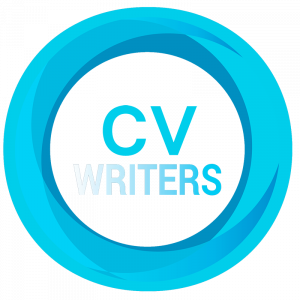
Introduction
In the competitive field of nursing, a well-crafted resume can make all the difference in securing your dream job. A nursing resume serves as a vital tool to showcase your skills, experience, and qualifications to potential employers. In this article, we will explore the key strategies and tips to create a winning nursing resume that stands out from the crowd.
Understanding Types of Nursing Resumes
Before diving into the specifics of crafting a nursing resume, it is important to understand the nuances of different nursing roles.
Nurse Manager Resume:
A resume tailored for individuals seeking managerial positions in nursing, highlighting leadership skills, administrative experience, and staff supervision abilities.
Nurse Practitioner Resume:
A resume specifically designed for nurse practitioners, showcasing advanced clinical skills, specialised certifications, and experience in providing comprehensive healthcare services.
Nurse Educator Resume:
A resume focused on individuals aspiring to teach and educate future nurses, emphasising teaching experience, curriculum development, and proficiency in instructional methodologies.
Student Nurse Resume:
A resume for nursing students or recent graduates with limited clinical experience, emphasising relevant coursework, clinical rotations, and educational achievements.
Registered Nurse Resume:
A resume for licensed registered nurses, highlighting clinical expertise, patient care experience, and any specialised certifications or areas of focus.
Enrolled Nurse Resume:
A resume for enrolled nurses, emphasising practical nursing skills, experience in providing direct patient care, and adherence to established care plans and protocols.
New Grad Nursing Resume:
A resume tailored for recent nursing graduates with limited professional experience, focusing on educational achievements, clinical rotations, and any additional certifications or relevant skills.
Resume for Enrolled Nurse:
A resume specifically designed for enrolled nurses, highlighting practical nursing skills, experience in medication administration, and ability to provide direct patient care under the supervision of registered nurses.
Resume for Registered Nurse:
A resume tailored for registered nurses, emphasising clinical skills, experience in patient assessment and care planning, and proficiency in documentation and communication within a healthcare team.
Tailoring your resume to the specific nursing role you are targeting will greatly increase your chances of success.
New Grad Nursing Resume: Tips For Recent Nursing Graduates
For example, a new graduate nursing resume should focus on relevant coursework, clinical rotations, and any specialised certifications or awards.
Crafting an Effective Nursing Resume
Identifying A Career Objective For A Nursing Resume:
Begin your resume with a clear and concise objective statement that highlights your career goals and how you can contribute to the organisation. This statement should be tailored to the specific nursing role you are applying for.
Highlighting Achievements In A Nursing Resume:
Use quantifiable achievements to demonstrate your impact and contributions in previous nursing roles. For example, mention improvements in patient outcomes, successful implementation of protocols, or recognition for outstanding patient care.
Essential Skills as A Nurse for Resume:
Identify the key nursing skills that are relevant to the role you are applying for and showcase them prominently. These may include clinical skills, communication abilities, critical thinking, problem-solving, and teamwork.
Key Nursing Skills for Resume:
Depending on the nursing speciality, highlight specialised skills and abilities that are crucial for the role. For instance, a surgical ward nurse should emphasise knowledge of sterile techniques, wound care, and post-operative monitoring.
Best Skills For A Nursing Resume:
Stay updated with the latest trends and in-demand skills in the nursing profession. This may include proficiency in electronic health records (EHR), evidence-based practice, patient education, and quality improvement.
Structuring and Formatting the Nursing Resume
Step-By-Step Guide On How To Write A Nursing CV:
Begin with your contact information, followed by a professional summary or objective statement, education details, relevant certifications, work experience, and any additional sections such as professional affiliations or volunteer work.
Addressing The Challenge Of Writing A Nursing Resume With No Experience:
If you have limited experience, focus on transferable skills gained through internships, clinical rotations, or relevant coursework. Highlight your dedication to learning and your passion for the nursing profession.
Creating An Impactful Nursing Resume Layout:
Opt for a clean and organised layout that is easy to read. Use clear headings and bullet points to highlight key information. Consider using a professional resume template to enhance the visual appeal.
Resume Format For A Nursing Job:
Choose a format that suits your experience and accomplishments. The reverse chronological format is commonly used, where the most recent experience is listed first. However, if you have relevant skills or certifications that outweigh your work experience, a functional or combination format may be more suitable.
Enhancing the Nursing Resume
Leveraging Nursing Resume Tips For An Impressive Presentation:
Proofread your resume thoroughly to eliminate any grammatical or spelling errors. Use concise language and avoid jargon. Tailor your resume for each application and ensure it aligns with the job description.
Seeking Nursing Resume Help and Utilising Professional Resume Writing Services:
If you are unsure about how to create an effective nursing resume, consider seeking guidance from professional resume writers who specialise in the healthcare industry. They can provide valuable insights and help you create a standout resume.
Writing An Attention-Grabbing Nursing Resume Summary:
A resume summary is a brief paragraph that highlights your key qualifications, experience, and achievements. Craft a compelling summary that entices the reader to explore your resume further.
Incorporating Nursing Resume References:
Include professional references who can vouch for your skills and work ethic, if asked by the employer. Obtain permission from these individuals beforehand and provide their contact information at the end of your resume.
Optimising Nursing Resume Keywords For Applicant Tracking Systems (ATS):
Many employers use ATS to screen resumes for relevant keywords before human review. Research the keywords commonly used in your nursing speciality and incorporate them strategically throughout your resume.
Conclusion
A well-crafted nursing resume is essential for making a strong impression on potential employers. By understanding the requirements of different nursing roles, highlighting achievements and skills, and utilising effective resume strategies, you can increase your chances of securing your desired nursing position. Put this newfound knowledge into practice and take the first step towards a successful nursing career.
FAQs
How to write a resume for a nursing job?
To write a resume for a nursing job, focus on showcasing your relevant skills, qualifications, and experience. Tailor the resume to the specific job requirements, highlight your clinical expertise, include relevant certifications, and provide examples of your achievements in patient care.
How long should a nurse’s resume be?
A nurse’s resume should ideally be one to two pages long. It should include the necessary information and be concise, focusing on the most relevant details. Avoid unnecessary details and ensure that the resume is easy to read and well-structured.
How do you write a nursing resume with no experience?
When writing a nursing resume with no experience, focus on highlighting your education, coursework, clinical rotations, and any relevant volunteer work or internships. Emphasise transferable skills such as communication, teamwork, and critical thinking. Include any certifications or specialised training you have completed.
What to include in a nursing resume?
A nursing resume should include your contact information, a professional summary or objective statement, education details, licences and certifications, clinical experience, relevant skills, and any additional sections such as professional affiliations or volunteer work. Tailor the content to the specific nursing job you are applying for.
What should a nurse’s resume look like?
A nurse’s resume should have a clean and professional appearance. Use clear headings, bullet points, and a readable font. Organise the information in a logical and structured manner. Consider using a professional resume template to enhance the visual appeal and ensure consistency. Proofread carefully for any errors or typos.
